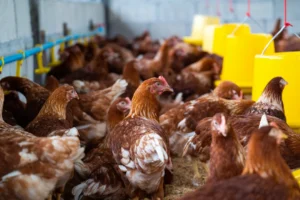In today’s global market, sustainability and certifications have become critical factors in the agricultural commodities sector. As consumers and businesses alike prioritize environmentally friendly and ethically sourced products, the pressure for sustainable practices and certified goods is transforming the industry. Companies that embrace sustainability and obtain relevant certifications not only contribute to a healthier planet but also gain a competitive edge. This post explores how the demand for sustainability and certifications is reshaping the agricultural commodities sector.
Sustainable practices in agriculture involve methods that protect the environment, conserve resources, and support social responsibility. These practices include reducing carbon footprints, minimizing waste, and ensuring fair labor conditions. As the world grapples with climate change and environmental degradation, the adoption of sustainable practices is no longer optional but essential for long-term success and resilience.
Certifications play a crucial role in verifying the sustainability of agricultural products. They provide assurance to consumers and businesses that the products they purchase meet specific environmental and ethical standards. Certifications such as Fair Trade, Organic, and Rainforest Alliance are increasingly sought after, and companies that achieve these certifications can access new markets and build trust with their customers.
Sustainable Practices in Agriculture
Sustainable practices in agriculture are designed to protect the environment, conserve resources, and support social responsibility. These practices include using water-efficient irrigation systems, adopting crop rotation and diversification, reducing the use of chemical pesticides, and implementing soil conservation techniques. By adopting these methods, agricultural businesses can minimize their environmental impact while maintaining or even enhancing productivity.
The benefits of sustainable practices extend beyond environmental protection. They also contribute to the long-term viability of agricultural operations by improving soil health, reducing input costs, and increasing resilience to climate change. Moreover, sustainable practices can enhance a company’s reputation and attract environmentally conscious consumers, providing a competitive advantage in the market.
The Role of Certifications
Certifications serve as a verification that agricultural products meet specific environmental and ethical standards. They provide assurance to consumers and businesses that the products they purchase are produced sustainably and responsibly. Common certifications in the agricultural commodities sector include Fair Trade, Organic, Rainforest Alliance, and GlobalGAP.
Obtaining certifications can open up new market opportunities for businesses. Certified products are often preferred by retailers and consumers who prioritize sustainability, leading to increased demand and higher sales. Additionally, certifications can enhance a company’s brand reputation and build trust with customers, suppliers, and stakeholders. However, achieving and maintaining certifications requires a commitment to rigorous standards and continuous improvement.
Challenges and Opportunities
While the adoption of sustainable practices and obtaining certifications present significant opportunities, they also come with challenges. Implementing sustainable practices may require initial investments in new technologies, training, and infrastructure. Additionally, the certification process can be complex and resource-intensive, requiring businesses to meet stringent criteria and undergo regular audits.
Despite these challenges, the long-term benefits of sustainability and certifications far outweigh the costs. Businesses that invest in sustainable practices and obtain certifications can differentiate themselves in a competitive market, access new customer segments, and enhance their resilience to environmental and social risks. Moreover, they contribute to the broader goal of creating a more sustainable and equitable global food system.
Conclusion
Sustainability and certifications are transforming the agricultural commodities sector, driven by the growing demand for environmentally friendly and ethically sourced products. By adopting sustainable practices and obtaining relevant certifications, businesses can gain a competitive edge, access new markets, and build trust with their customers. The commitment to sustainability is not only beneficial for the environment but also essential for long-term business success.
At Sax Trading LLC, we are dedicated to promoting sustainability and achieving the highest standards of certification. Our commitment to environmentally friendly practices and ethical sourcing ensures that our products meet the expectations of our partners and customers. Request a quote today and discover how our sustainable and certified agricultural commodities can benefit your business.








